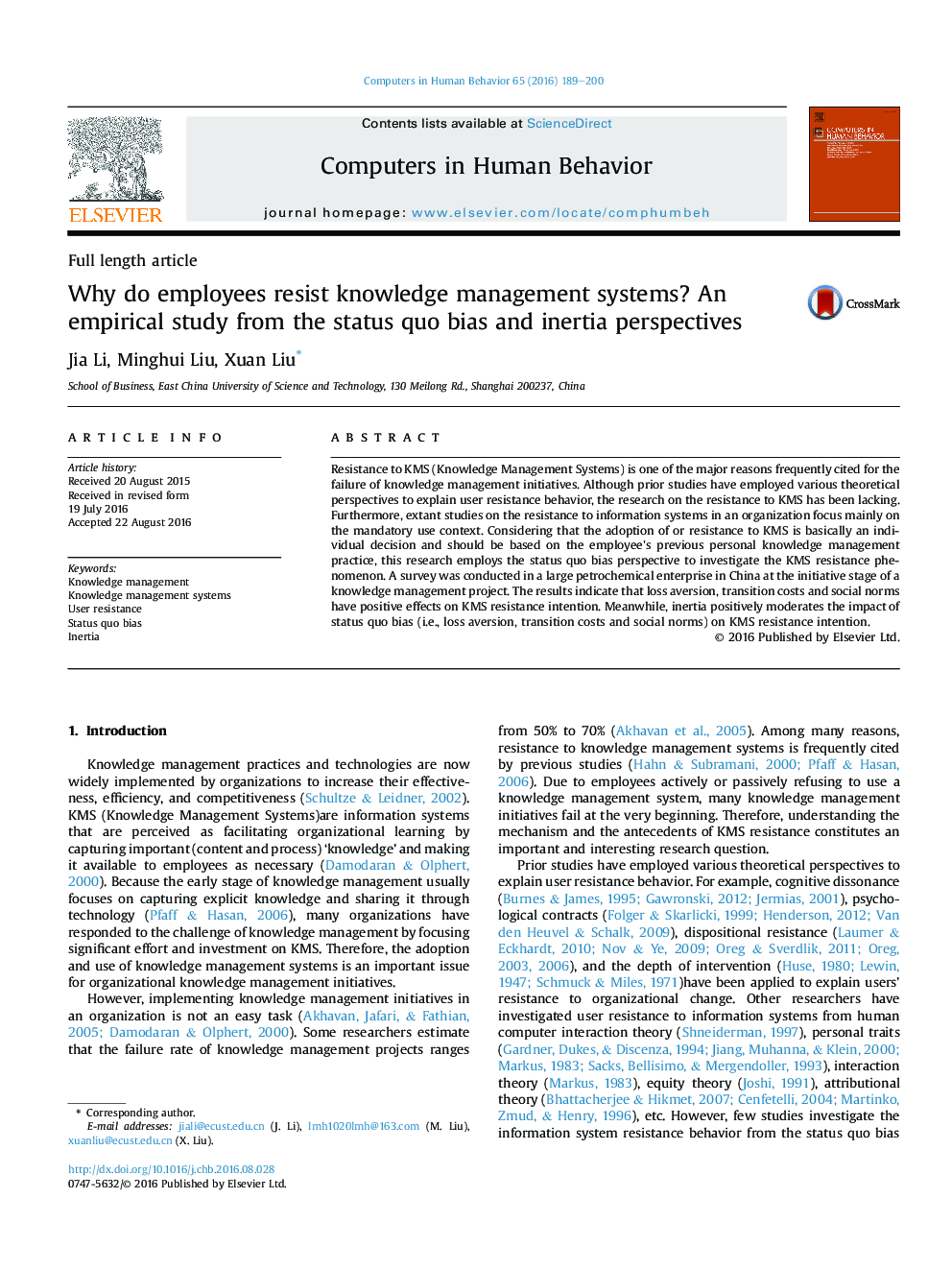| Article ID | Journal | Published Year | Pages | File Type |
|---|---|---|---|---|
| 4937786 | Computers in Human Behavior | 2016 | 12 Pages |
Abstract
Resistance to KMS (Knowledge Management Systems) is one of the major reasons frequently cited for the failure of knowledge management initiatives. Although prior studies have employed various theoretical perspectives to explain user resistance behavior, the research on the resistance to KMS has been lacking. Furthermore, extant studies on the resistance to information systems in an organization focus mainly on the mandatory use context. Considering that the adoption of or resistance to KMS is basically an individual decision and should be based on the employee's previous personal knowledge management practice, this research employs the status quo bias perspective to investigate the KMS resistance phenomenon. A survey was conducted in a large petrochemical enterprise in China at the initiative stage of a knowledge management project. The results indicate that loss aversion, transition costs and social norms have positive effects on KMS resistance intention. Meanwhile, inertia positively moderates the impact of status quo bias (i.e., loss aversion, transition costs and social norms) on KMS resistance intention.
Related Topics
Physical Sciences and Engineering
Computer Science
Computer Science Applications
Authors
Jia Li, Minghui Liu, Xuan Liu,
